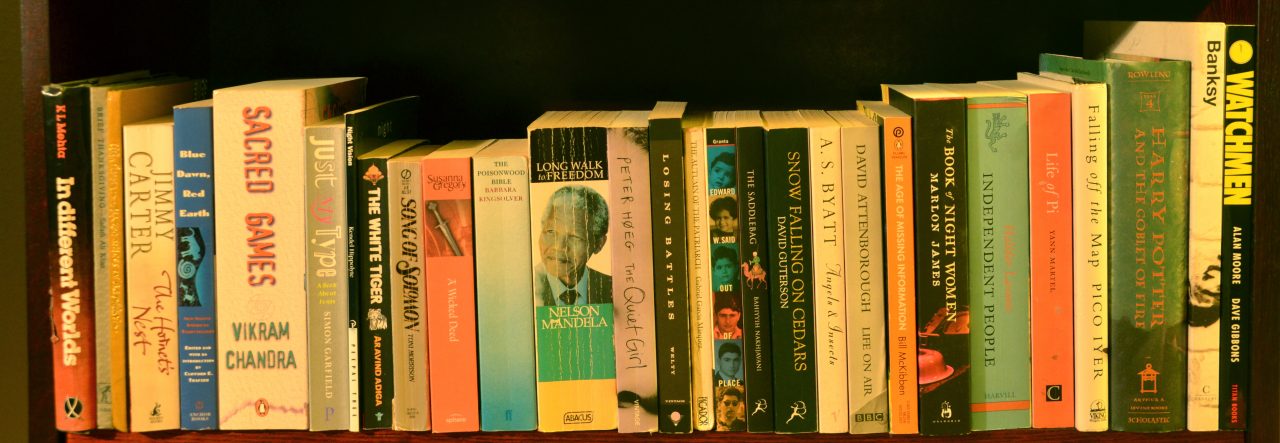Published by Random House, 2015, 335 pages.
A performance of King Lear: the actor playing King Lear, Arthur Leander, is forgetting his lines and acting odd. He collapses with a heart attack. The curtain quickly comes down, Jeevan Chaudhary, a paramedic who happens to be in audience, rushes to help him. An ambulance is called, but Arthur dies. His death is witnessed by a child actress, Kirstin Raymonde, who is playing one of one of Lear’s daughters as a girl and has become close to Arthur.
Arthur Leander is a well-known actor but the news of his death—which would normally have dominated the news media—is overtaken by the news of a new virus, the Georgia flu, that is spreading throughout the world.
Fast-forward 20 years. The world has changed completely: the virus has killed most of humanity, leaving small pockets of survivors, most of whom live in small settlements that survive by being hostile to outsiders.
“Civilization in Year Twenty was an archipelago of small towns. These towns had fought off ferals, buried their neighbors, lived and died and suffered together in the blood-drenched years just after the collapse, survived against unspeakable odds and then only by holding together in the calm, and these places didn’t go out of their way to welcome outsiders.”
Without enough humans to run things, the world loses most of the things that many of us take for granted. The young in the post-collapse world listen in wonder as their elders tell them about a switch that could light a room, a knob that caused water to flow, and the Internet, something you could not see but was everywhere.
Kirstin is now part of the Travelling Symphony, created by merging what was left of a symphony orchestra and a repertoire company. The Travelling Symphony moves from settlement to settlement in North America, performing music and Shakespeare.
Among the few things Kirstin has left from the time before the flu—and her most precious possessions—are two comics that Arthur gave her, written and drawn by his first wife, Miranda. The comics, called Dr. Eleven Vol. I No. 1: Station Eleven and Dr. Eleven Vol I No. 2: The Pursuit, are about a physicist who lives on a space station designed to resemble a small planet. It is like Earth but different, much as the present world is like the old world but different. One of the images shows Dr. Eleven standing “on the dark rocks overlooking an indigo sea at twilight. … A line of text across the bottom of the frame: I stood looking over my damaged home and tried to forget the sweetness of life on Earth.”
One day, the Travelling Symphony reaches St. Deborah by the Water, which is ruled by a so-called prophet who attacks anyone who dares defy him. Who is the prophet and where did he come from?
The book moves between the post-collapse world and Arthur Leander’s life. Arthur is the thread that connects many of the characters.
Station Eleven was published in 2014, long before any of us had heard of Covid-19. The novel is prescient in the way it describes a virus that spreads like wildfire, causing flu-like symptoms which can get out of hand, often resulting in death.
Emily St. John Mandel paints a chilling picture of the post-collapse world, and how all the things that are an essential part of our lives now could become distant memories, existing merely as stories that the older ones tell their children.
The mundane now becomes almost unimaginable in this world. As Kirstin walks out of an abandoned house, she imagines what it must have been like to live there. “You would leave and lock the doors behind you, and all through the day you would carry a key.”
Or take the Museum of Civilization created by Arthur’s closest friend, Clark Thompson, in the airport where he has been living since the collapse. The display consists of artefacts from the past that Clark has been collecting like iPhones, high heels and credit cards…things that are now meaningless, but serve as witnesses of an earlier, easier time.
This book is not just about a post-apocalyptic world: it is about grief, loss—whether of loved ones or a way of life—and the attempt to hold on to precious memories. But it also feels like a warning. We all had a taste of what life could be like without the freedom to see people, to travel or go to concerts and public events. But St. John Mandel takes this scenario much, much further. I sincerely hope that we never get to this point.


Another novel I have to read! For my shelves’ sake Suroor stop the good reviews!!
😀
Join the club! I have the same problem…
Pingback: Best books of 2017 – Talking About Books